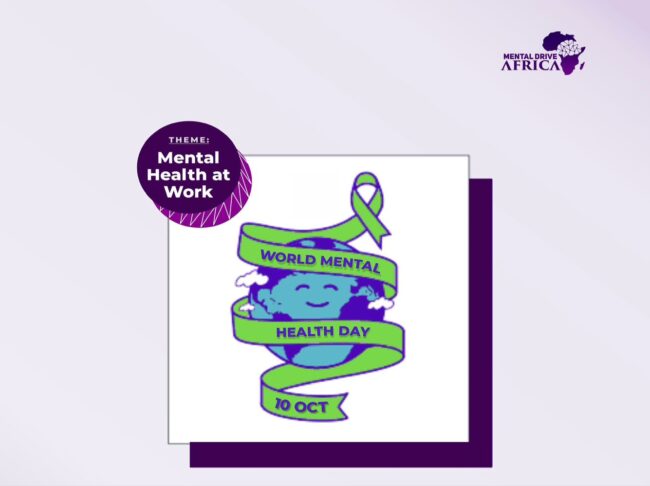As we mark this year’s World Mental Health Day, the theme, “Prioritizing Mental Health in the Workplace,” resonates more strongly than ever before. Let’s be honest: we spend a good part of our lives at work, right? Workplaces are where our mental health either thrives or takes a nosedive. With over half of the global population employed, it’s high time we recognized that we cannot just leave our mental health at the office door like an umbrella, it tags along, whether or not we like it.
Modern workplaces demand so much from employees, leading to the alarming rise in depression, anxiety, and burnout. A Forbes report revealed that 40% of workers experience poor mental health in the workplace. In Africa, where unemployment is high, many employees are too scared to say, “Hey, I’m not okay” for fear of being labeled “weak” or, worse, losing their jobs. The result? People suffer in silence, making the problem even worse.
Creating a work environment where mental health is prioritized is essential. But what does it mean to truly prioritize mental health in workplaces? First, it requires a mindset shift. Employers need to understand that mental health is not a personal issue that employees should “leave at home.” Instead, it is a business imperative. Companies that care about mental health have happier staff, less turnover, and they even make more money! Win-win.
To promote mental well-being, organizations must cultivate an inclusive culture where every employee feels seen. Implementing zero- tolerance policies for bullying, harassment or stigma around mental health is very crucial. No one should dread Monday because of a toxic environment.
Furthermore, organizations should provide real mental health support. This is more than just putting a poster on the wall about “taking care of your mind”. Access to mental health resources such as assistance programs, counseling services, and mental health workshops is very crucial. Mental health education should be integrated into training programs, ensuring that everyone from entry-level staff to senior management understands the importance of psychological well-being. Managers and team leaders should also be trained to recognize early signs of stress, burnout, or mental health challenges within their teams.
Employers must also lead by example, by admitting that they are humans too, and learning to be vulnerable. This openness fosters a culture where employees feel comfortable seeking help when needed.
Finally, organizations can promote a healthy work-life balance by offering flexible work hours, ensuring manageable workloads, and providing fair leave policies.
This World Mental Health Day, let us all take a moment to reflect on the importance of mental health in our workplaces. At Mental Drive Africa, we envision a future where every workplace in Africa puts mental well-being at the front and center. Refusing to proactively address this results in decreased productivity and output. Already, depression and anxiety are costing the global economy an estimated $1 trillion annually in lost productivity, according to WHO.
By prioritizing mental health, we can build stronger, more resilient workforces and, ultimately, healthier societies. This is a call to action for You and I. We are the safe spaces, the change we crave and the key to unlocking a healthy future for all.






